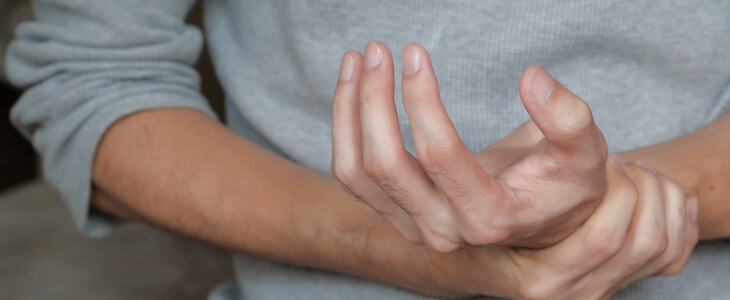Did you suffer nerve damage as a result of a botched surgery? This is a tragic situation you never should have found yourself in. You went in hoping for relief or a cure but now face new challenges. What do you do now, and how can you recover money to pay for additional medical treatment, offset your lost income, and compensate yourself for the pain and suffering you experienced?
At Cooper Schall & Levy, we see you and your struggle. Our Philadelphia medical malpractice lawyers provide compassionate support and vigorous representation for people in your situation. We’re ready to fight for your rights and help you claim the compensation you need to aid in your recovery. With us by your side, you can focus on addressing your new challenges while knowing your legal case is in capable hands. Call us today or complete our contact form for a free consultation.
What Is Surgical Malpractice, and How Does It Cause Nerve Damage?
Surgical malpractice occurs when a healthcare professional makes a mistake before, during, or after surgery that deviates from the accepted standard of care. The term “standard of care” refers to what a reasonably competent and skilled healthcare professional with a similar background and in the same medical field would have done under similar circumstances. A provider’s failure to meet this standard can lead to serious complications, including nerve damage. Here are some ways surgical malpractice can cause nerve damage:
- Improper Surgical Technique: Using incorrect surgical methods or being careless during the operation can directly injure the nerves. This might happen if a surgeon cuts, stretches, or applies too much pressure to a nerve.
- Surgical Equipment Mishaps: Sometimes, tools and devices can fail during surgery and cause nerve damage, in which case their manufacturer might be to blame.
- Anesthesia Errors: Anesthesiologists play a crucial role in managing pain and consciousness during surgery. Mistakes in the administration or choice of anesthesia can lead to nerve damage, either by direct injury or by reducing blood flow to nerve tissues.
- Prolonged Pressure: If a patient is in an improper position during a long surgery, it can put excessive pressure on certain nerves, leading to damage. This is a common issue in surgeries lasting several hours.
- Infection and Inflammation: Surgical sites can become infected, causing inflamed tissue to put pressure on nearby nerves. This indirect damage can cause just as much harm as a direct nerve injury.
Common Signs and Symptoms of Nerve Damage
Identifying that you have nerve damage is the first step toward taking legal action and addressing your injury. According to Penn Medicine, some common signs and symptoms of nerve damage include:
- Numbness, tingling, or burning sensations in the limbs
- Unexplained muscle weakness or paralysis
- Persistent or unusually strong headaches
- Coordination problems
- Sharp pain radiating down one leg
- Back pain that extends to other body parts
- Vision issues
- Slurred speech
- Memory loss
- Seizures
- Tremors
- Sudden changes in your mental functions or capabilities
Proving Nerve Damage Is the Result of Surgical Malpractice
Proving you suffered nerve damage due to surgical malpractice is challenging because of the complex nature of medical procedures and the need to demonstrate a clear breach of the standard of care. Compelling evidence is crucial to establish the link between the surgery and your resulting nerve damage. Key types of evidence in these cases include:
- Medical Records: These records document your condition before and after surgery, highlighting any discrepancies.
- Expert Testimony: Medical professionals can clarify how the surgeon or another healthcare provider breached the standard of care.
- Surgical Reports: Reports by the surgeon who performed the procedure can offer insights into the specifics of what they did, potentially indicating errors.
- Imaging Results: MRI or CT scans can capture the nature and extent of nerve damage, potentially revealing its causes.
- Witness Statements: Accounts from hospital staff or others present during the procedure can provide additional perspectives on what happened and any possible errors that may have occurred.
Pennsylvania law stipulates that you need to include a “Certificate of Merit” with your malpractice claim. This rule states that you cannot move forward with your case until a medical professional from the same or a substantially similar field provides a letter saying your case has merit.
Why You Need a Medical Malpractice Lawyer for Your Nerve Damage Case
Bringing a nerve damage case from surgical malpractice to a successful conclusion involves intricate legal and medical concepts. A medical malpractice lawyer brings crucial knowledge and experience to the table, as they are adept at reviewing medical reports, understanding procedural nuances, and identifying breaches in the standard of care. They can consult medical professionals on the facts of your case, meeting the prerequisite for the Certificate of Merit while also strengthening your claim with expert testimony.
By shouldering the legal responsibilities, an attorney can also alleviate your emotional and bureaucratic burdens, allowing you to focus on your recovery while they pursue compensation for:
- Your past and future medical bills
- Any income you lost due to your injury
- Any reduction in your future earnings due to your injury or disability
- Your diminished quality of life due to your injury or disability
- Your pain and suffering
- Your emotional distress
Deadline to File a Surgical Malpractice Lawsuit
Under Pennsylvania law, you usually have to file a personal injury lawsuit within two years of sustaining your injury. However, nerve damage from surgical malpractice is not always immediately obvious, which can create challenges regarding taking prompt legal action. The discovery rule may give you additional time to file a lawsuit if your injuries are not immediately apparent. Specifically, the rule says you have two years from when you discover or reasonably should have discovered the injury to file a lawsuit. Contact an attorney right away to avoid jeopardizing your right to compensation.
Contact Our Pennsylvania Nerve Damage Lawyers Today
The longer you wait to talk to a lawyer about your case, the greater your chances of losing your right to compensation. Don’t risk this. Instead, call Cooper Schall & Levy today for a free consultation, or you can reach us online.


